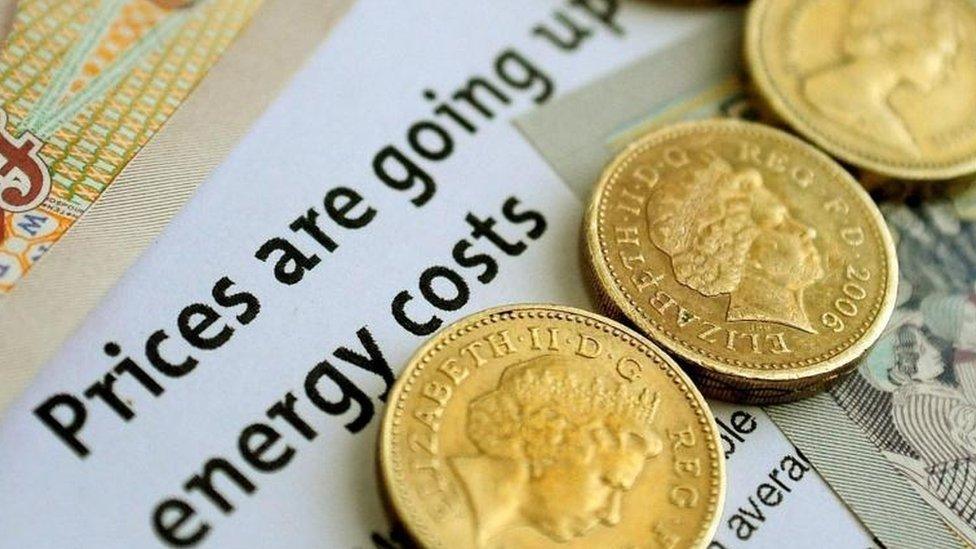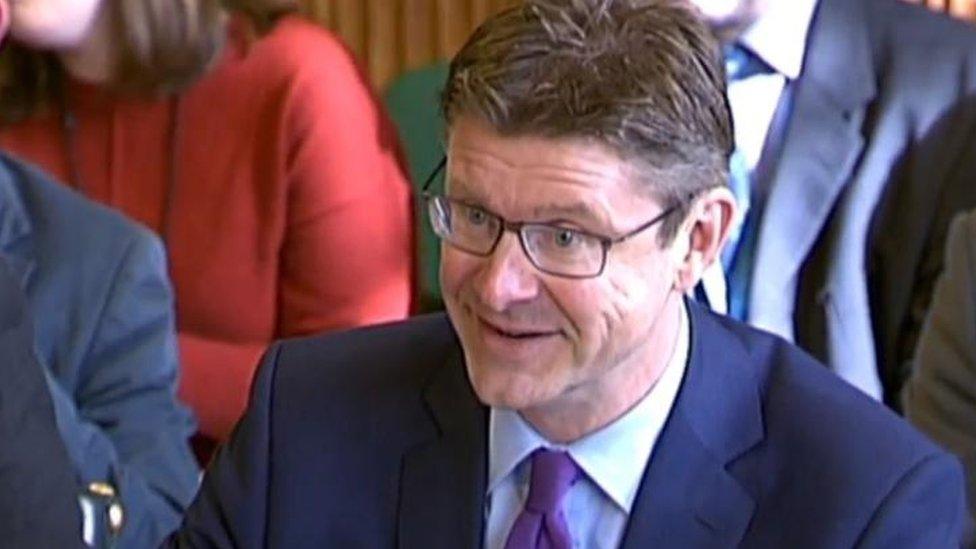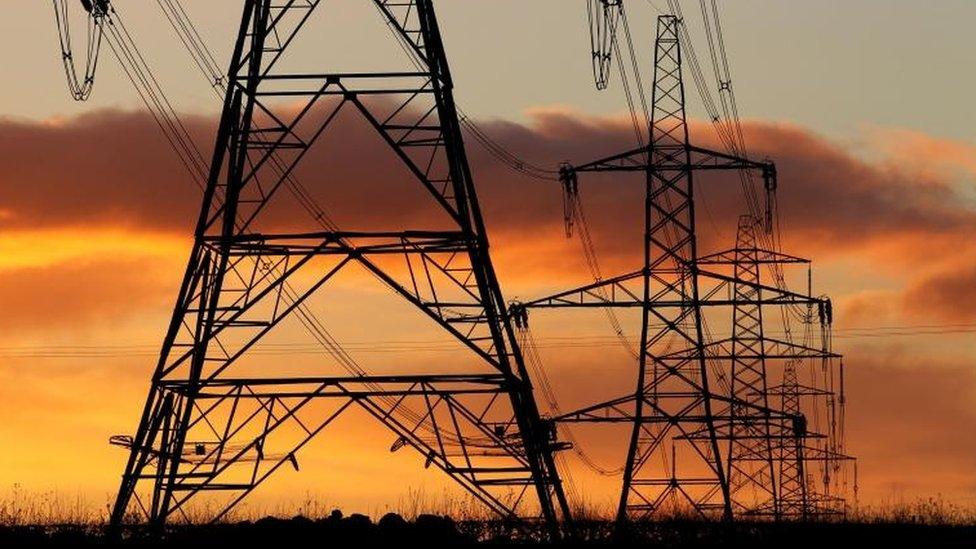Energy secretary to 'flex muscles' over rising bills
- Published

"Muscular" action will be taken by the government against energy firms' "damaging" price rises, a minister has said, but the timing remains unclear.
Business and Energy Secretary Greg Clark said that, owing to the imminent election, the date for this "decisive" move was being reviewed.
He claimed that firms "milked" loyal customers through rising default gas and electricity tariffs.
Energy UK said government intervention would be bad for customers.
Five of the big six suppliers have announced price rises this year.
Mr Clark said he did not have the power to affect prices directly, but the government could act to alter a "deficiency" in the market.
Price rises
Major energy firms announced increases in standard tariffs in the last few months, blaming investment requirements, government demands and the falling value of the pound.
They include:
Npower increased its electricity prices by 15% and gas prices by 4.8% on 16 March
E.On is due to put up electricity prices by 13.8% and gas prices by 3.8% on 26 April
Scottish Power raised its electricity prices by 10.8% and gas prices by 4.7% on 31 March
EDF, combining previous prices changes with a second announcement of rises in June, will raise electricity prices by 18.1%, but gas prices will stay the same
SSE will raise electricity prices by 14.9% on 28 April, although gas prices will be unchanged
British Gas has announced a price freeze until August.
The energy regulator Ofgem said that some of the price rises were hard to justify and Mr Clark has now told the Business Select Committee that the market is "clearly not working" for those on default tariffs.

Greg Clark said the government action would come "soon"
The government is due to respond to a two-year investigation by the Competition and Markets Authority (CMA) which found that two-thirds of UK households were paying "over the odds" for their energy compared with those who have switched to a different tariff.
However, the CMA recommended that capping standard tariffs was not in the best interests of customers.
That conclusion has been challenged widely, and there has been widespread speculation that the government could intervene with some sort of cap on these variable deals.
Mr Clark told the committee that customers who could not shop around online, or who were not "fleet of foot", were being "milked" by the energy companies.
He said the government's response would be decisive, and later said it would be "muscular and strong".
The timing would now require "reflection" following the expectation of an early General Election in June.
Lawrence Slade, chief executive of Energy UK, which represents the major suppliers, said: "We must allow the remedies from the recent market investigation to be implemented but the industry is not complacent. Action is being taken now, with companies going further to engage with loyal customers and leading new initiatives like targeted switching campaigns.
"Intervening further in the energy market risks undermining so many of the positive changes we are seeing in the retail market. That would be bad for competition but more importantly, bad for customers too."
But Polly Mackenzie, director of the Money and Mental Health Policy Institute, said: "Shopping around and switching energy providers can be daunting at the best of times, but when you're living with a mental health problem it can feel next to impossible. If you struggle to weigh up complex information, to make telephone calls or even to get out of bed, making sure that you're paying a fair rate for your energy bills is out of the question.
"We're pleased to see the minister recognising that the market isn't working for customers who struggle to shop around, and we hope to see the government taking action."
- Published12 April 2017

- Published19 January 2017
